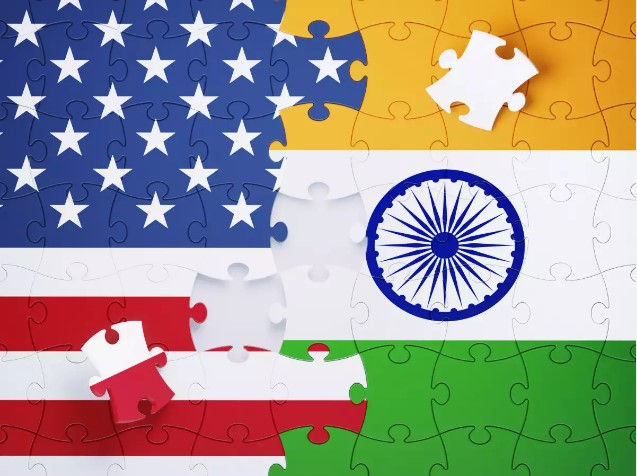The Rising Power: How India's Geopolitical Influence is Shaping the World in Ways You've Never Heard Before
- peacetalks24
- Dec 3, 2024
- 4 min read
Updated: Dec 13, 2024
In recent years, India has emerged as a significant player on the global stage, influencing geopolitics like never before. With a population exceeding 1.4 billion and a rapidly growing economy that is projected to be the third largest by 2030, India is establishing itself as a force to be reckoned with. It is increasingly taking a stand against the influence of giants like China and the United States. This article explores the multiple dimensions of India's role in contemporary geopolitics and its efforts to maintain peace and stability in the region.
The Resurgence of India on the Global Stage
India has long been a country of immense potential. Over the last decade, it has begun to harness that potential in ways that are evident across the globe. India’s growth story encompasses not just economic advancement, but also cultural diplomacy and strategic partnerships that reflect its commitment to a multipolar world.
For example, India's participation in global forums like the G20, BRICS, and QUAD is a clear indicator of its proactive approach to shaping international policies. In the G20, India has championed issues like sustainable development, setting ambitious targets such as achieving net-zero emissions by 2070. By advocating for responsible global practices, India is positioning itself as a leader in the global dialogue on climate change.

India's role in these organizations goes beyond participation; it takes the lead in driving discussions towards equitable and inclusive solutions. By representing the concerns of developing countries, India has established itself as a voice for the Global South, emphasizing the importance of shared challenges like poverty alleviation and access to education.
India’s Strategic Partnerships in Asia
India's geopolitical strategy in Asia is multi-dimensional. Through the Indo-Pacific strategy, it is strengthening ties with Japan and Australia, countries with shared values of democracy and respect for international law. The collaborative efforts through the Quad grouping aim to ensure stability and counterbalance regional threats.
A key aspect of India's Act East Policy is enhancing economic relations with Southeast Asian nations. For instance, India has ramped up trade with ASEAN countries, amounting to over $100 billion in 2021. This engagement not only fosters economic integration but strengthens diplomatic relationships critical for countering China’s growing hold in the region.
As China advances its Belt and Road Initiative, India's response is the Asia-Africa Growth Corridor, which focuses on promoting sustainable developmental projects that enhance connectivity without accompanying debts. This initiative serves as a counter-narrative to the perceived neocolonialism that comes with China's investments.

Countering China's Expansive Reach
China's rapid ascent in global influence has raised concerns in neighboring countries. However, India is actively responding to these challenges. Its military presence in border areas, bolstered by growing partnerships, acts as a deterrent to Chinese aggressive maneuvers.
The recent standoff in Ladakh, which lasted over nine months, tested India's resolve to defend its territorial integrity. But India also emphasized dialogue as its central approach to conflict resolution, showcasing its commitment to lasting peace.
Furthermore, India is engaging in multilateral forums to maintain peace in the South China Sea. It advocates for principles like freedom of navigation, which are increasingly under threat from Chinese assertiveness. India's alliances with the Philippines and Vietnam reflect its strategy to unite with nations sharing similar concerns.
Strengthening Connections with the West
While balancing China's influence, India is forging a stronger relationship with the United States. America sees India as a vital partner in its Indo-Pacific strategy, aiming to foster a stable and secure region.
Defense ties have strengthened significantly through agreements like the Logistics Exchange Memorandum of Agreement (LEMOA), signed in 2016. This document allows for logistical support between the armed forces of both nations, improving operational readiness. The bilateral trade between India and the U.S. has surged to approximately $150 billion in 2021, signifying a robust economic partnership.
As India continues to deepen its connections with Western powers, it remains committed to its core values. This diplomatic approach ensures India does not become merely a pawn in larger geopolitical conflicts.

Promoting Peace in South Asia
India's role as a stabilizing force extends beyond its borders. As a leading power in South Asia, it takes on the responsibility of fostering peace and often mediates conflicts between neighboring countries.
India's commitment to global peace is exemplified through its participation in UN peacekeeping missions. With over 250,000 troops deployed in more than 50 missions over decades, India stands as one of the largest contributors in this regard. These contributions not only enhance India's international standing but also amplify its soft power.
Moreover, India is making strides to improve relations with neighbors like Nepal and Bangladesh. Initiatives to foster economic cooperation and address long-standing disputes have created a platform for dialogue and mutual benefit, showcasing India's dedication to peace through understanding.
The Path Ahead
India's growing role in global geopolitics is highlighted by its strategic partnerships, commitment to peace, and an assertive approach to countering larger powers. As it navigates complex international waters, India is poised to influence global policies that promote equity and stability.
This rising dragon is not just a force to be reckoned with; it embodies a vision for a multipolar world where diverse voices contribute to collective security. As India asserts its influence on the global stage, the outlook is bright, promising a future of peace and cooperation that benefits not just India, but the world at large.
As we move forward, the world will be watching how India positions itself, ready to lead amidst the evolving dynamics of global geopolitics.



Comments